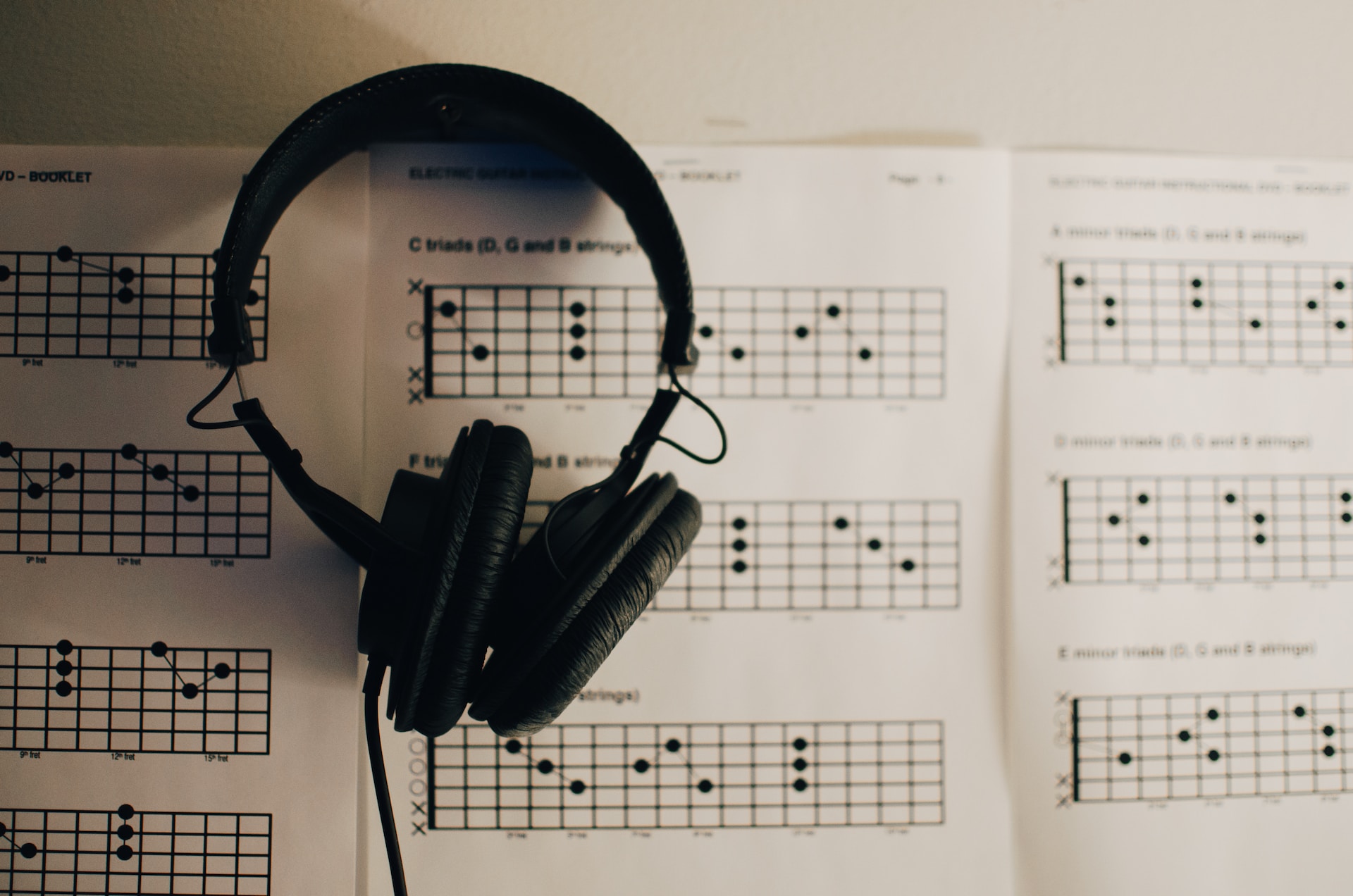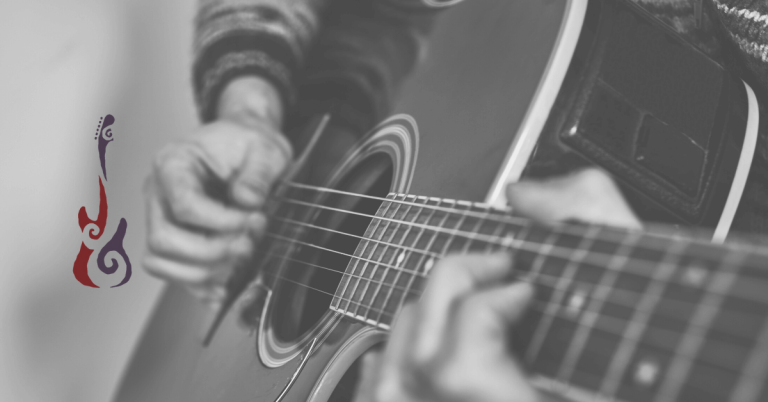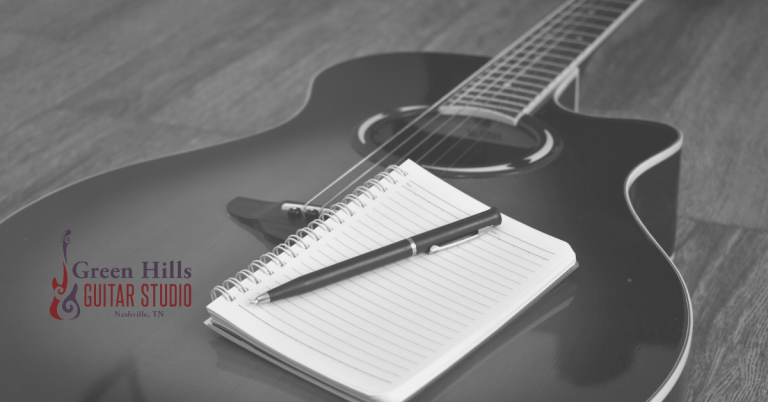The Many Benefits of Playing Music
Music has always held a special place in human culture and history, captivating hearts and minds across generations. It possesses a unique ability to evoke emotions, transport us to different worlds, and inspire profound connections. Beyond its enchanting melodies and captivating rhythms, there are myriad benefits of playing music that extends to those who actively engage with it.
Do you remember the first time you heard a piece of music that made you feel something? That made your heart beat along with the rhythm of the drums during a Memorial Day parade or when you first heard relatable lyrics on the radio.
I remember always wanting to play an instrument. And once I could, it felt like an extension of myself. A way to communicate. And a way to calm down.
In this blog, we will explore the transformative power of music and delve into the countless advantages it brings to individuals of all ages and backgrounds. From cognitive and emotional well-being to social connections and personal growth, music can profoundly enrich our lives.
So, let’s embark on this musical journey and discover the benefits that await those who embrace the art of playing music.
The Cognitive Benefits of Playing Music
Playing music offers a multitude of cognitive benefits that go beyond the sheer pleasure of creating beautiful sounds. Engaging in musical activities stimulates various areas of the brain and enhances cognitive skills in remarkable ways.
According to the National Institutes of Health (NIH), children who learn an instrument early in life are likelier to have higher test scores and a higher IQ in young adulthood. Learning an instrument sets them off on the right foot (or the right note).
While the research is still developing, better verbal memory, second language pronunciation accuracy, reading ability, and executive functions are several benefits of learning an instrument. Let’s explore four of the cognitive benefits of playing music:
1. Improved memory
Playing music requires memorizing melodies, chords, and rhythms, which exercises the brain’s memory capacity. This constant mental exercise can enhance memory skills, both short-term and long-term. Moreover, studies have shown that musicians have a higher capacity for auditory and visual memory than non-musicians. This memory improvement can extend to other areas of life, such as academic performance or daily tasks.
2. Enhanced problem-solving
Music is a complex language that demands problem-solving skills and critical thinking. Musicians constantly face challenges such as deciphering sheet music, improvising harmonies, or finding creative solutions to technical difficulties when playing an instrument or composing music. These experiences enhance their problem-solving skills, fostering a mindset of persistence and innovation that can be applied to various other domains.
3. Increased concentration
Playing music requires intense concentration and focus. Musicians must simultaneously pay attention to multiple elements, such as tempo, dynamics, pitch, and rhythm. Practicing and performing music trains the brain to maintain concentration for extended periods, thereby strengthening the ability to concentrate on tasks outside of music.
4. Boosted creativity
Music has an undeniable ability to unleash creativity and nurture the imagination. Playing an instrument allows self-expression and experimentation, encouraging musicians to think outside the box and explore new possibilities. The process of composition or improvisation enables individuals to tap into their artistic instincts, fostering a sense of creativity that can extend beyond music and into other aspects of life.
Incorporating music into our lives brings joy and satisfaction and provides a powerful cognitive workout that enhances memory, problem-solving skills, concentration, and creativity. So, whether you’re strumming a guitar, learning to play the piano, or playing any other instrument, the cognitive benefits of music will leave an indelible mark on your mind.
The Emotional Benefits of Playing Music
Not only does learning an instrument have cognitive benefits, but it is also an excellent tool for relaxation and emotional regulation. Music can uplift our spirits, evoke deep emotions, and provide a means of catharsis.
Even just listening to music can be an effective tool for stress management. According to the University of Nevada, Reno, listening to music with a BPM (beats per minute) of 60 can cause your brainwaves to synchronize with this rhythm, inducing relaxation. Take that into account next time you are learning a new song!
Playing an instrument is a tool for self-expression. If you don’t have the words to convey your emotions, music can be that method. Let’s explore four of the emotional benefits that playing music can bring:
1. Stress reduction and relaxation
Music has long been recognized as a therapeutic tool for stress reduction. When we engage in playing music, it serves as a form of active meditation, allowing us to enter a state of flow and temporarily escape the pressures of daily life. The rhythmic patterns, soothing melodies, and harmonies can induce a sense of relaxation, calming our minds and bodies.
2. Improved mood and emotional well-being
Playing music has a direct impact on our mood. Creating and immersing ourselves in melodies and harmonies can evoke many emotions, from joy and excitement to introspection and serenity. Engaging with music releases endorphins and dopamine in our brains, promoting feelings of happiness and overall emotional well-being.
3. Increased self-expression and emotional release
Music offers a unique avenue for self-expression that transcends the limitations of words. When we play an instrument or sing, we can convey our deepest emotions and thoughts, even those that are difficult to articulate verbally. It allows us to express ourselves authentically, providing a cathartic release for pent-up emotions and inner turmoil.
4. Enhanced self-confidence and self-esteem
Mastering an instrument or performing in front of others can significantly boost self-confidence and self-esteem. As musicians gain proficiency and receive positive feedback, they develop a sense of accomplishment and pride in their abilities. Playing music in front of an audience further reinforces their self-assurance as they witness their performance’s impact on others.
By playing music, we can tap into the wellspring of emotions, finding solace, joy, and an avenue for self-expression.
The Social Benefits of Playing Music
Playing music offers personal gratification and creates opportunities for meaningful social connections and engagement. It is a powerful catalyst for bringing people together, fostering collaboration, and building community.
Growing up, I was always involved in choir, musical productions, band, and other musical activities. In each activity, the shared experience of singing and playing music together created lifelong friendships for me. Even today, as a singer-songwriter living in Nashville, I am involved in the music community here. Whatever your level is: beginner to advanced, there are ways to find a community through music.
Community band, open mics, start your own band, singer-songwriter nights, or even as a spectator at any of these events. People in the music communities are friendly and open to sharing the joy of music. And if you choose not to perform in front of an audience, playing an instrument on your own will also give you a greater appreciation for and understanding of the music being played!
Let’s explore the social benefits that playing music can bring:
1. Opportunities for collaboration and teamwork
Playing music with others, whether in a band, orchestra, or ensemble, requires teamwork and cooperation. Musicians learn to listen to one another, synchronize their playing, and contribute to the collective sound. This collaborative nature of music strengthens interpersonal skills, promotes effective communication, and fosters a sense of unity among the participants.
2. Building connections and friendships through music
Music has the incredible ability to forge connections between individuals from diverse backgrounds. Whether jamming with friends, joining a choir, or participating in music classes, shared musical experiences create bonds and friendships. The common passion for music provides a platform for like-minded individuals to connect, share ideas, and support one another on their musical journeys.
3. Increased empathy and understanding of others
Playing music cultivates empathy as musicians learn to appreciate different perspectives and interpret emotions conveyed through melodies. This heightened sense of empathy extends beyond music and into everyday interactions. Musicians develop a deeper understanding of others’ experiences, which enhances their ability to connect with people on an emotional level.
4. Community engagement and participation
Music has the power to bring communities together. By actively participating in musical events, concerts, or local performances, musicians contribute to the vibrancy of their communities. Whether through school ensembles, community orchestras, or bands, they engage in the collective creation of art, fostering a sense of pride and belonging within their communities.
Playing music enriches our personal lives and opens doors to a world of social connections and engagement. Through collaboration, friendships, empathy, and community involvement, musicians find a sense of belonging and contribute to the cultural fabric of their communities. So, grab your instrument, join a musical group, and experience the joy of making music with others.
Tips for Getting Started with Playing Music
Thoroughly convinced of the benefits of learning an instrument but don’t know where to start? Try finding a local music school or instructor to teach you the basics of your instrument.
A mentor or music instructor like us here at Green Hills Guitar Studio will have years of experience and understanding that can help you accelerate the process of your musical journey.
One of the best ways to learn a new instrument is to find a teacher you trust and connect with. Learning music should be fun, after all! Free and lower-cost resources to start learning include YouTube tutorials, community classes, and library books and videos.
Green Hills Guitar Studio has many free instructional videos on YouTube and low-cost online learning materials to help you along your musical journey.
Also, it’s worth checking out the Nashville Public Library’s free online Artist Works database.
Overcoming Obstacles Along Your Musical Journey
Learning to play music is a journey that requires dedication and perseverance. It is no easy feat, but the rewards are undoubtedly worthwhile. To accelerate your success with music, here are some tips to help you overcome practice obstacles:
- Make your instrument visible: Keep it out of its case and on a stand in a prominent place, such as your living room. Seeing your instrument daily serves as a reminder and can inspire you to pick it up and practice.
- Develop a practice routine: Set aside dedicated time every day to pick up your instrument. Start with 10 minutes a day if that’s all you can spare. Consistency is key; even a short daily practice session can yield significant progress over time. As you build the habit, gradually increase your practice time.
- Show up to your lessons prepared: Make it a goal to practice at least four times a week. Acknowledge that learning music can be challenging, but by dedicating to regular practice sessions, you are setting yourself up for success. Your lessons will be more productive when you come prepared, putting in the time to practice.
- Choose music you enjoy playing: One of the most crucial aspects of staying motivated is selecting music that you genuinely enjoy. When you connect with the music you’re playing, it becomes more enjoyable and fulfilling. Select pieces that resonate with you and make learning fun and engaging.
- Be honest with yourself and your instructor: Setting realistic expectations for your progress is essential. While diving into complex and elaborate pieces immediately may be tempting, mastery takes time. Be honest with yourself and your instructor about your skill level and any challenges you may face. They can provide guidance and help you choose suitable pieces that are within your reach.
Remember, learning to play music is challenging. There’s a good reason that so many people admire successful musicians’ talent and perseverance: it takes a lot of work!
The Takeaway
Throughout this blog, we have explored the vast benefits of playing music. From cognitive enhancements to emotional well-being, social connections, and personal growth, music has proven itself to be a powerful force.
If you want to take your musical journey to the next level, contact Green Hills Guitar Studio. We offer private lessons with experienced instructors who can guide you on your musical path, whether you’re a beginner or looking to refine your skills.







